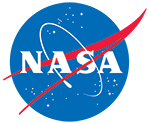
SnowEx17 CRREL Terrestrial Laser Scanner (TLS) Point Cloud, Version 1
Data set id:
SNEX17_TLS_PC_CRREL
DOI: 10.5067/YOIPYEWCZOD5
This is the most recent version of these data.
Version Summary
Version Summary
new data set
Overview
This data set contains terrestrial LIDAR survey (TLS) point cloud data collected at Grand Mesa, Colorado as part of the 2017 SnowEx campaign. Data were collected in the fall (September and October) and winter (February) seasons. Each point contains X, Y, and Z coordinates (Easting, Northing, and Elevation), along with ancillary information, such as intensity (i) and color (R,G,B), where available. This is unprocessed data which has not been classified by land use (e.g. bare earth, low vegetation, trees).
Parameter(s):
LIDAR
Platform(s):
GROUND-BASED OBSERVATIONS
Sensor(s):
TLS
Data Format(s):
LAZ
Temporal Coverage:
- 26 September 2016 to 17 February 2017
Temporal Resolution:
- Not applicable
Spatial Resolution:
- varies
- varies
Spatial Reference System(s):
- WGS 84 / UTM zone 13NEPSG:32613
Spatial Coverage:
- N:39.05S:39.012E:-107.93W:-108.22
Blue outlined yellow areas on the map below indicate the spatial coverage for this data set.
Data Access & Tools
A free NASA Earthdata Login account is required to access these data. Learn More
Documentation
Help Articles
General Questions & FAQs
This article covers frequently asked questions about the NASA NSIDC DAAC's Earthdata cloud migration project and what it means to data users.
How to Articles
Many NSIDC DAAC data sets can be accessed using NSIDC DAAC's Data Access Tool. This tool provides the ability to search and filter data with spatial and temporal constraints using a map-based interface.Users have the option to:
The NASA Earthdata Cloud is the NASA cloud-based archive of Earth observations. It is hosted by Amazon Web Services (AWS). Learn how to find and access NSIDC DAAC data directly in the cloud.